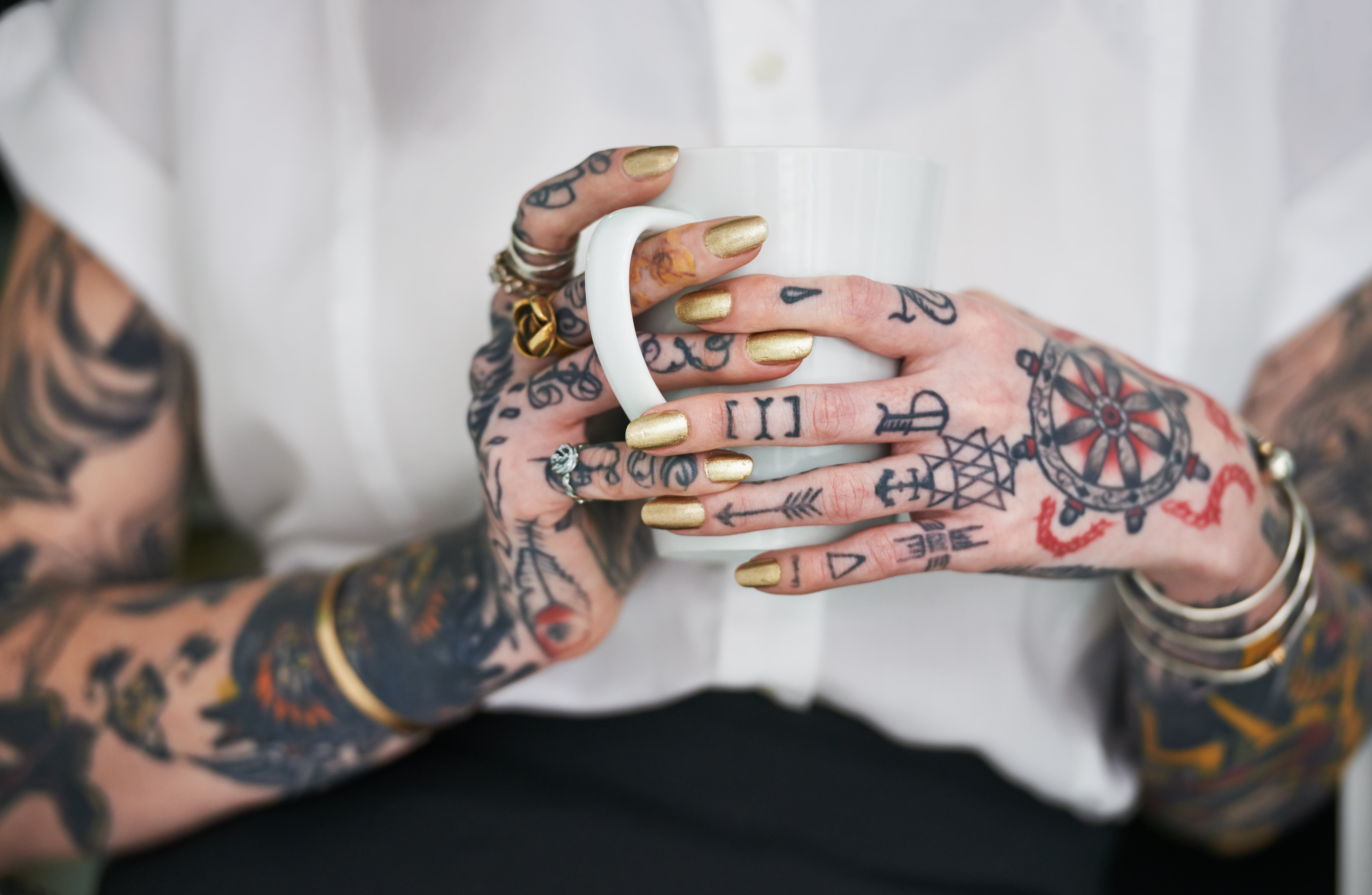I’m a tattoo artist – here’s how to overcome your body art regret
Megan Fox and Melanie Griffith both recently covered their respective ex-husbands’ names – but there is a way to live with embarrassing ink, says Dominique Holmes


However mainstream they may become, nothing says you’ve truly lived, been spontaneous, wild, and open to new experiences like a tattoo does.
More than just a mark of defiance, or a depiction of rebellion and free-spirited spontaneity, our tattoos can often represent small acts of self-love, a treat to ourselves to celebrate, commemorate, or bring us a moment of joy. Tattoos can depict an endless spectrum of significance to the wearer, but the thing they all have in common is that there was a moment in the life of all who are tattooed when we felt strongly enough about something to commit it permanently to our skin.
But as we know, we are all constantly evolving beings, existing in a world that does not allow us to stand still for more than a moment. Our cells regenerate every seven to 10 years, meaning we are literally not the same person now that we were a decade ago.
When you think about it, this makes our tattoos the most permanent things about us. So it’s not really a big surprise when we fall out of love with that ink that we loved all that time ago. But how do we deal with this regret?
When people ask me about covering up or removing an unwanted tattoo, I ask them the same question; is it offensive or inappropriate, or does it fill you with such overwhelming anger, sadness or anxiety that you cannot look at it, talk about it, or even think about it? This is actually rarely the case; the most common reasons for getting rid of a piece are apathy towards it, a mild embarrassment or fear of judgement for having something old and unfashionable (give it time, I tell them; tattoos come in trends like anything else, it will become fashionable again). Most often, they would simply prefer to have something else.
My advice to this majority is simple, painless, and free: self-acceptance and a good sense of humour. Learning to love, or at the very least make peace with, a tattoo you no longer enjoy may not change the world, but it can certainly spark a change in the way we see, accept and ultimately appreciate ourselves and the complexity of our life stories.
Of course, there are exceptions. Not every regrettable tattoo is as easy to live with. Megan Fox and Melanie Griffith both recently covered their respective ex-husbands’ names with something fresh and new, demonstrating how much easier it is to reconcile a quirky friendship memento from a hedonistic weekend in Ibiza than a dedication to a former spouse.
Conversation – and opinion – around tattooing names is still rife, and there remains a disproportionate level of snobbery towards them in spite of a greater acceptance of tattoos in general. Over my 20-year career, I have seen many alternatives to the literal name tattoo. Translated into another (sometimes fictional) language, hidden in an abstract shape, replaced by a subject which represents the significant other; all personal declarations of love and commitment, but all attempting to bypass the dreaded question: “What if you break up with them?”
While we rarely hear the same comment so freely uttered when we make other life-long commitments regarding a partner – having children, or buying a house together, for example – name tattoos seem to invite this level of judgement from opinionated onlookers. But whether you choose a literal name tattoo, or an abstract interpretation, just remember that the only opinion that really matters is your own.
Life is not a continuous stream of positivity. We might be able to curate the perfect appearance on social media, untagging ourselves from photos we don’t like, or deleting that gushing anniversary post after a breakup, but our real lives, and our real selves, are not so easy to edit. But isn’t that what makes life so rich and interesting?
Life is short, and moments of joy are often fleeting. My advice is simple: don’t be afraid to keep a reminder of the things, or people, that have made you happy. It’s not shallow to prioritise the aesthetic of your tattoos over the symbolism; meanings can change, but if you like how it looks, it’s much easier to love long-term.
Let yourself believe your blurry old Chinese character really does mean “eternal love”, laugh along at the cheesy song lyrics you truly believed spoke to your soul, take pride in the courage and the freedom you felt that day you inked your skin just to be spontaneous, and celebrate your youthful, impulsive self.
Importantly, don’t let outsiders shame you for your tattoo choices. Forgive the questionable decisions your younger self made. Embrace those decisions, rather than regretting them, and let yourself re-love what made you so happy in the past. It may well lead you to happiness once more.
Join our commenting forum
Join thought-provoking conversations, follow other Independent readers and see their replies
Comments


Bookmark popover
Removed from bookmarks